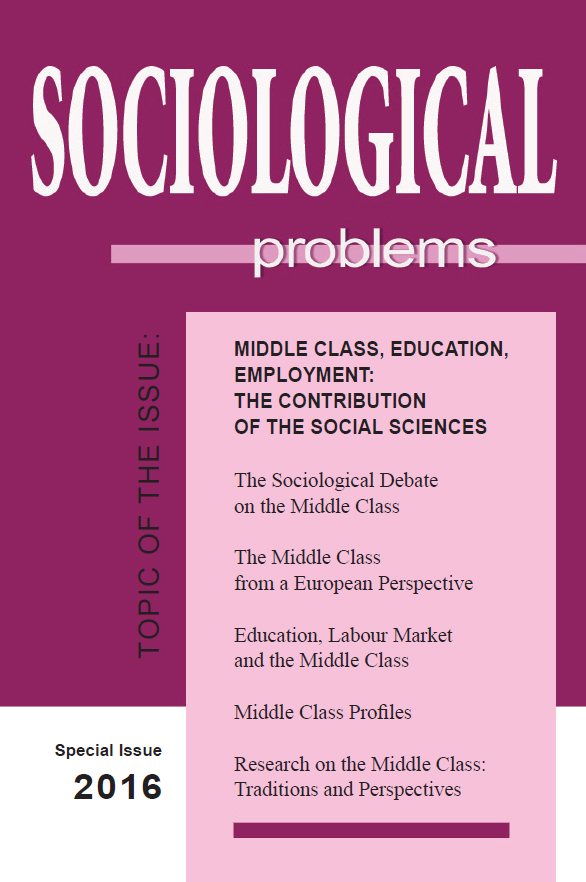Socio-professional Differences of School-to-work Transitions
Socio-professional Differences of School-to-work Transitions
Author(s): Rumyana Stoilova, Lachezar NyagolovSubject(s): Social Sciences, Education, Sociology, State/Government and Education, Applied Sociology, Social differentiation, Social Theory
Published by: Институт по философия и социология при БАН
Keywords: socio-professional differences; school-to-work transition; social mobility
Summary/Abstract: The article discusses research on young people belonging to different occupational groups, with respect to their chances to obtain secure employment and well-paid work at the start of their work career as well as their chances for upward social mobility, measured both by objective and subjective indicators. The analysis of survey results shows that the significant difference in the levels of income of young people is between those of the high-qualified white-collar group and those belonging to lower occupational groups. Subjective assessment of downward mobility is strongly present among low-skilled white-collar and low-skilled blue-collar workers. In those groups, the share of young people who assess they are in a worse position compared with their fathers is largest, and with a similar subjective measurement. Young people belonging to the low middle class are exposed to similar low levels of income and precarity as young people from the low-skilled working class.
Journal: Социологически проблеми
- Issue Year: 48/2016
- Issue No: Special
- Page Range: 80-100
- Page Count: 21
- Language: English
- Content File-PDF

